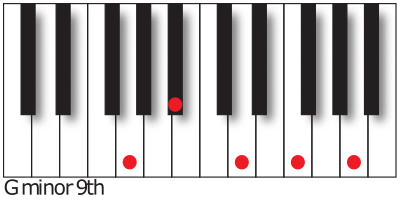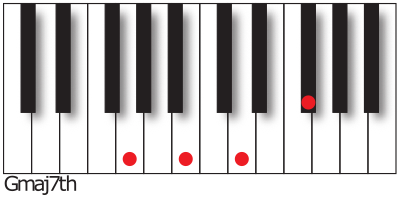This is the method of pivoting chords from the major to minor and vice versa using the same root. Some interesting chord progressions can be made using this method. This chord chart uses the key of Eb major
| Chord number | Chord type | Chord name (triads) | Chord name (sevenths) |
| 1 (I) | Major | Eb major | Eb major seventh |
| 2 (ii) | Minor | F minor | F minor seventh |
| 3 (iii) | Minor | G minor | G minor seventh |
| 4 (IV) | Major | Ab major | Ab major seventh |
| 5 (V) | Major / Dominant (7) | Bb major | Bb dominant seventh |
| 6 (vi) | Minor | C minor | C minor seventh |
| 7 (viiº) | Diminshed / Half dimished seventh | D diminshed | D half diminished seventh |
We start with the chord (vi) Cmin7 Then for the (ii) chord, play the major (II) instead of the minor (ii), therefore we have Fmaj 7. This gives some nice tension with the borrowed chord. Then you simply play the minor chord (ii) at the same root which would be Fmin7. The final chord (I) resolves on Ebmaj7.
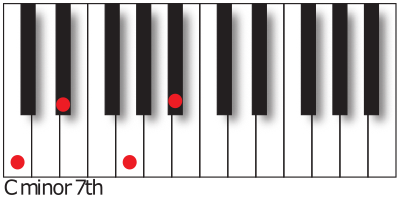
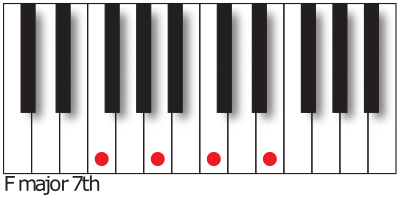
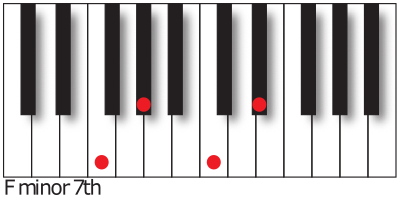
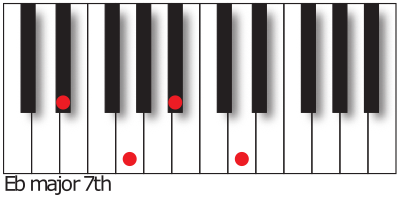
For the next pivot chord method we will do I, IV, iv, v. This translates to Eb major, Ab major then pivot to the Ab minor. Finally instead of playing the Bb Major / or Bb7 we play a Bb minor (second borrowed chord). Note that it is very common to hear the (V) dominant chord to be substituted with a minor chord in R&B / Neo Soul

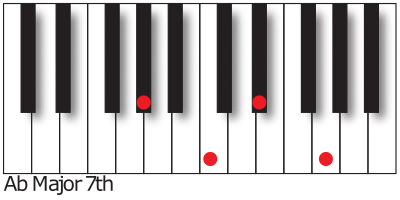
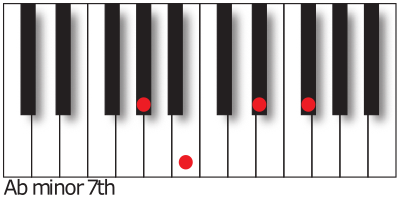
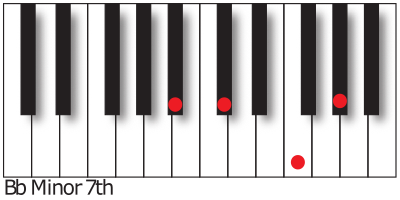
Next is a good one with a Video example – Come Around by The Foreign Exchange. This starts off with Gmin9, and then pivots to Gmaj7, followed by Fmaj7 and the Ebmaj7. So this technique can be used also as a starting chord.
